Mythmaking and Democracy
Republicans have had great success in convincing Americans that "voter fraud" is a grave and growing threat to the republic, but the exact crime that they speak of is almost nonexistent.WASHINGTON — History is forever burdened by the propensity of the political class to stir the public into hysteria over this or that threat, even if fabrications — not fact — form the basis of the provocation. The Iraq war is the most grievous recent tragedy to fall into the pattern.
Phantoms are forever stalking the public conscience. The hype over gay marriage as a threat to the sanctity of the American family has led voters in 23 states to approve bans on such unions, thus relieving themselves of the psychic burden that gay couples pose to them — couples who are perceived, apparently, as a greater peril than a miserably sexualized pop culture that many of these same voters undoubtedly devour.
Fear is stoked unabashedly by partisans who gain from exaggerating whatever threat suits their purpose. Since the 2000 Florida election debacle, Republicans have had great success in convincing Americans that “voter fraud” — in particular, ineligible voters who cast ballots (or try to cast ballots) on Election Day — is a grave and growing threat to the republic and so requires each voter to present a photo identification in order to exercise what is supposed to be a fundamental right.
It matters not that the most frequent form of voting fraud is carried out through absentee ballots, which generally require no identity check other than verification of a signature. Or that even the Bush Justice Department, despite all efforts, has found no evidence that impersonating a qualified voter is at all commonplace. Or that states for decades managed to verify a voter’s identity by comparing that person’s signature on Election Day with a signature already on file.
Inflaming the public imagination with such false claims is one thing. Convincing the supposedly learned and dispassionate justices of the Supreme Court is quite another.
Yet this is what the state of Indiana and its partisan allies in the Bush administration have managed to do. In upholding Indiana’s strict photo identification law — written by Republicans in the Legislature and passed over the objection of Democrats — the justices admitted that the state had provided absolutely no evidence that the type of fraud the photos would combat (that is, an illegitimate voter showing up and claiming to be a different, legitimate one) has ever occurred in the state.
“The only kind of voter fraud that (the Indiana ID law) addresses is in-person voter impersonation at polling places. The record contains no evidence of any such fraud actually occurring in Indiana at any time in its history,” Justice John Paul Stevens admitted in his controlling opinion.
In fact, Stevens had to stretch so far to find an example that his footnote on the subject centers on Tammany Hall’s corruption of the 1868 New York City elections, and references a newspaper account of a single case of impersonation in the disputed 2004 Washington gubernatorial election — a contest in which 2.8 million votes were cast.
Stevens, along with Chief Justice John Roberts and Justice Anthony M. Kennedy, also found that the law would do exactly what those who object to it claim: It would place a “heavier burden” on the voting rights of those least likely to hold a driver’s license or another acceptable photo ID — the elderly, the poor, the homeless and those with religious objections to being photographed.
In layman’s terms, this is the reasoning: Despite the completely bogus claims of voter fraud that allegedly would be combated through the identification requirement, Indiana may nonetheless disenfranchise some legal voters — notably, those who may tend to vote Democratic.
Voting-rights lawyers are taking solace in the nature of the opinion. It was narrow, they say, signed by only three justices (though in all, six justices voted to uphold the statute) and seems to invite future challenges. “They suggest there needs to be either someone who is likely to be denied a vote, or is denied a vote,” says Wendy Weiser of the Brennan Center for Justice at New York University, one of the groups that opposed the Indiana law.
Yet at its core, the decision says it is perfectly acceptable for a state to make it harder for some legal voters to cast ballots than others. The high court’s breathtaking illogic demeans it. More frighteningly, it diminishes democracy.
Marie Cocco’s e-mail address is mariecocco(at)washpost.com.
© 2008, Washington Post Writers Group
Your support matters…Independent journalism is under threat and overshadowed by heavily funded mainstream media.
You can help level the playing field. Become a member.
Your tax-deductible contribution keeps us digging beneath the headlines to give you thought-provoking, investigative reporting and analysis that unearths what's really happening- without compromise.
Give today to support our courageous, independent journalists.

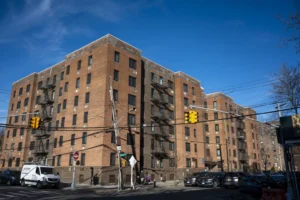
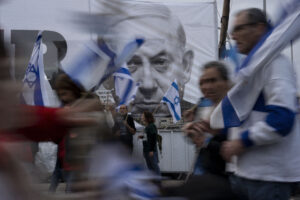
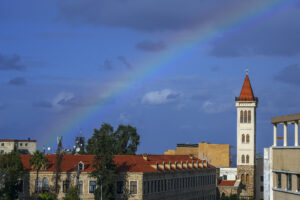
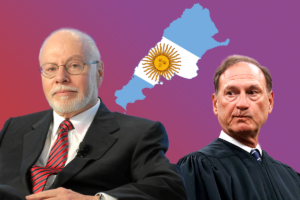
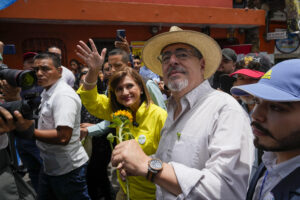
You need to be a supporter to comment.
There are currently no responses to this article.
Be the first to respond.